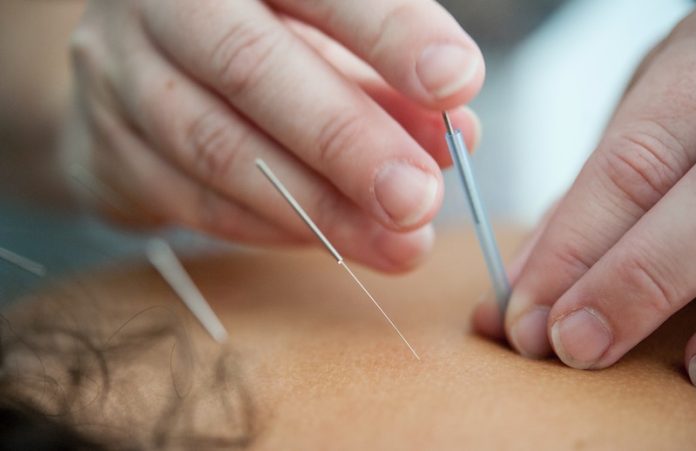
A recent study published online in JAMA Network Open has shed light on a potential new way to help patients with Parkinson’s disease who also experience anxiety.
Conducted by Jing-qi Fan, Ph.D., from the Guangzhou University of Chinese Medicine in China, and a team of researchers, this study explores the use of acupuncture as a treatment for anxiety in Parkinson’s disease patients.
In this study, sixty-four patients with Parkinson’s disease and anxiety were selected to participate.
These patients were divided into two groups randomly, and each group received eight weeks of treatment, followed by eight weeks of follow-up. What’s noteworthy about this study is that it was designed to ensure objectivity and minimize bias:
Blinded Operators: The acupuncture practitioners, those evaluating the outcome measures, and the statistical analysts were all blinded to which group each patient belonged to.
This means they didn’t know whether a patient was receiving real acupuncture or sham acupuncture, ensuring unbiased assessment.
Blinded Patients: Importantly, the patients themselves were also blinded to their treatment group. This was done to prevent any potential placebo effects from influencing the results.
The researchers used the Hamilton Anxiety Scale (HAM-A) to measure anxiety levels in the participants.
At the end of the eight-week treatment period, they noticed little difference in HAM-A scores between the group receiving real acupuncture and the group receiving sham acupuncture.
However, what’s striking is what happened during the eight-week follow-up period:
The real acupuncture group experienced a significant reduction in their HAM-A score. On average, their scores were 7.03 points lower than those in the sham acupuncture group.
Adverse Reactions It’s essential to consider safety when evaluating any medical treatment. In this study, there were four reported mild adverse reactions during the course of treatment.
These reactions were relatively minor and did not diminish the overall positive outcomes of the study.
The authors of the study highlight the significance of their findings, emphasizing that this is the first randomized clinical trial focusing on the effectiveness of acupuncture as a treatment for anxiety in Parkinson’s disease patients.
The results suggest that acupuncture may have a valuable role in improving the well-being of individuals living with Parkinson’s disease and anxiety.
In conclusion, this study provides promising evidence that acupuncture can be a beneficial treatment for anxiety in Parkinson’s disease patients.
While there was little difference between real and sham acupuncture during the treatment phase, the significant reduction in anxiety scores observed during the follow-up period indicates that acupuncture may have a lasting positive impact on anxiety levels in these patients.
This research introduces a potentially valuable option for managing anxiety in Parkinson’s disease, offering hope to individuals who face this challenging condition.
However, it’s important to remember that while these findings are promising, further research and exploration are needed to fully understand the role of acupuncture in managing anxiety for Parkinson’s disease patients.
As always, individuals living with Parkinson’s disease and anxiety should consult with their healthcare providers to discuss the best treatment options tailored to their unique needs and circumstances.
Acupuncture may be a welcome addition to the range of therapies available for those seeking relief from anxiety in the context of Parkinson’s disease.
If you care about Parkinson’s disease, please read studies that Vitamin B may slow down cognitive decline, and Mediterranean diet could help lower risk of Parkinson’s.
For more information about brain health, please see recent studies that blueberry supplements may prevent cognitive decline, and results showing Plant-based diets could protect cognitive health from air pollution.
The research findings can be found in JAMA Network Open.
Follow us on Twitter for more articles about this topic.
Copyright © 2023 Knowridge Science Report. All rights reserved.



